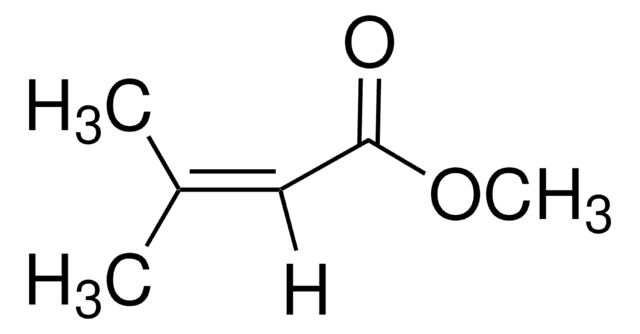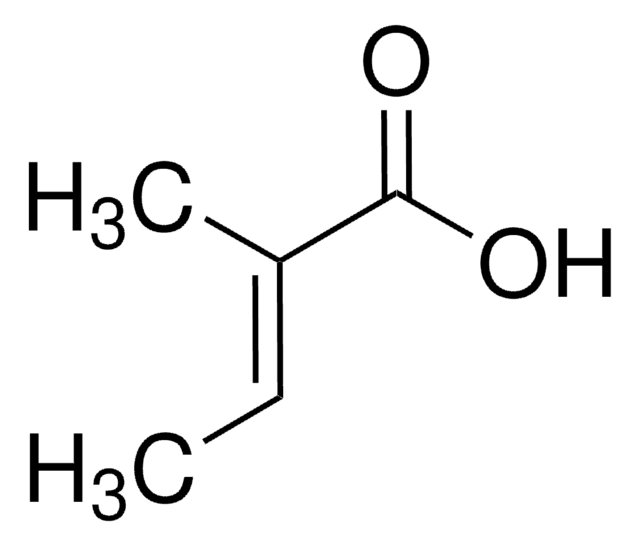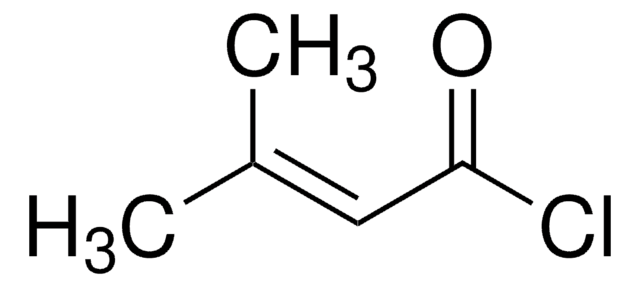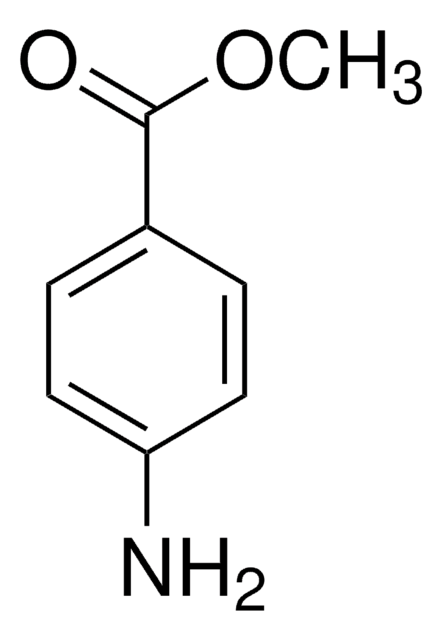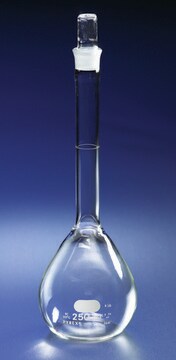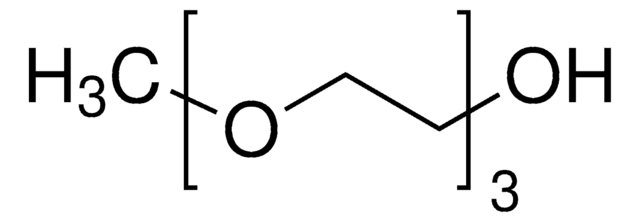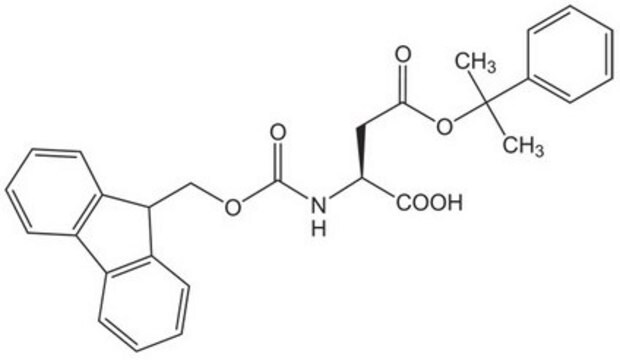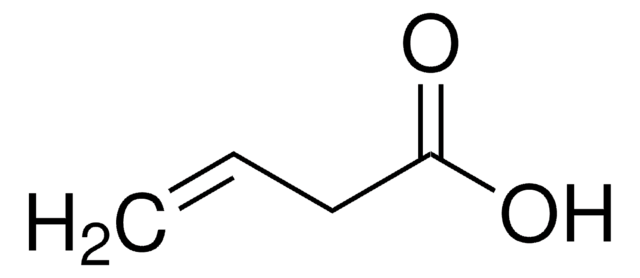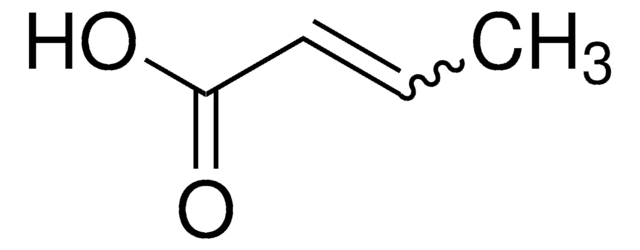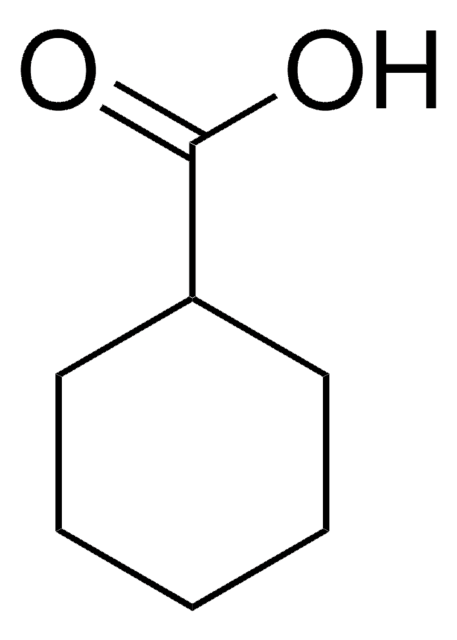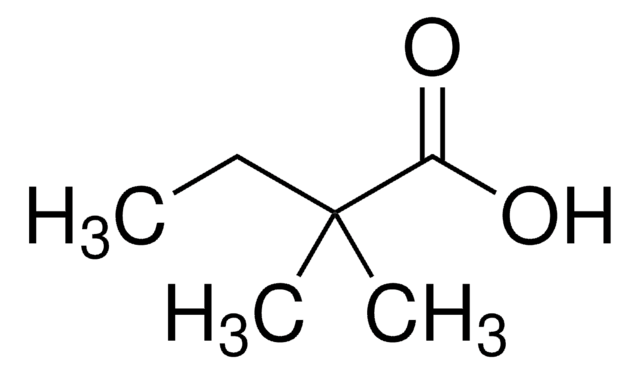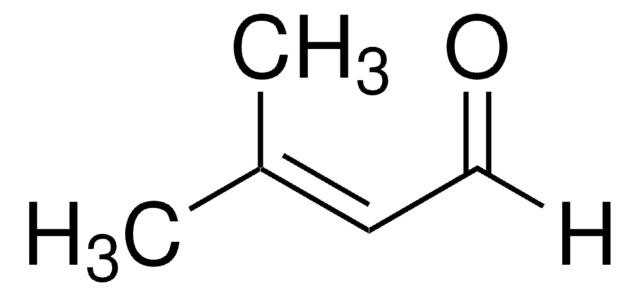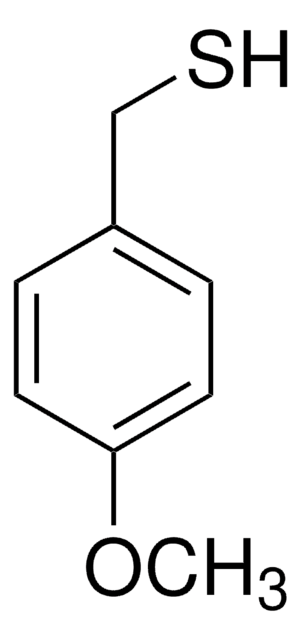D138606
3,3-Dimethylacrylic acid
97%
Synonym(s):
3-Methyl-2-butenoic acid, 3,3-Dimethylacrylic acid, 3-Methylcrotonic acid, Senecioic acid
Sign Into View Organizational & Contract Pricing
All Photos(3)
About This Item
Linear Formula:
(CH3)2C=CHCOOH
CAS Number:
Molecular Weight:
100.12
Beilstein:
1720305
EC Number:
MDL number:
UNSPSC Code:
12352100
PubChem Substance ID:
NACRES:
NA.22
Recommended Products
Quality Level
Assay
97%
form
solid
bp
194-195 °C (lit.)
mp
65-70 °C (lit.)
SMILES string
C\C(C)=C\C(O)=O
InChI
1S/C5H8O2/c1-4(2)3-5(6)7/h3H,1-2H3,(H,6,7)
InChI key
YYPNJNDODFVZLE-UHFFFAOYSA-N
Looking for similar products? Visit Product Comparison Guide
Related Categories
Signal Word
Danger
Hazard Statements
Precautionary Statements
Hazard Classifications
Eye Dam. 1 - Skin Irrit. 2 - STOT SE 3
Target Organs
Respiratory system
Storage Class Code
11 - Combustible Solids
WGK
WGK 1
Flash Point(F)
200.1 °F - closed cup
Flash Point(C)
93.4 °C - closed cup
Personal Protective Equipment
dust mask type N95 (US), Eyeshields, Gloves
Choose from one of the most recent versions:
Already Own This Product?
Find documentation for the products that you have recently purchased in the Document Library.
Customers Also Viewed
3-methyl-3-butenoic acid: an artefact in the urinary metabolic pattern of patients with 3-hydroxy-3-methylglutaryl-CoA lyase deficiency.
C Jakobs et al.
Clinica chimica acta; international journal of clinical chemistry, 106(1), 85-89 (1980-09-08)
Shogo Inamine et al.
Bioorganic & medicinal chemistry, 22(21), 5902-5909 (2014-10-07)
IsoVa-RYYRIK-NH2 is a highly specific antagonist ligand of the opioid receptor-like 1 (ORL1) receptor, an endogenous ligand of which is 17-mer peptide nociceptin. ORL1 antagonists have potential for clinical use as analgesic and antineuropathic drugs, and thus information on the
Hirofumi Inoue et al.
Biological & pharmaceutical bulletin, 42(5), 845-849 (2019-05-08)
It has been suggested that imbalances in gut microbiota are related to diseases associated with metabolism, the central nervous system, etc. Therefore, analysis of short-chain fatty acids (SCFAs) produced by gut microbiota is very important as an indicator of causation
Nareshbabu Kamatham et al.
Photochemical & photobiological sciences : Official journal of the European Photochemistry Association and the European Society for Photobiology, 18(10), 2411-2420 (2019-07-28)
ortho-Nitrobenzyl (oNB) triggers have been extensively used to release various molecules of interest. However, the toxicity and reactivity of the spent chromophore, o-nitrosobenzaldehyde, remains an unaddressed difficulty. In this study we have applied the well-established supramolecular photochemical concepts to retain
K Roth et al.
The Journal of pediatrics, 88(2), 229-235 (1976-02-01)
A patient is described in whom lactic acidosis of very severe degree was found to coincide with the presence of beta-methylcrotonic acid and rho-hydroxyphenyllactic acid in urine in large amounts, while beta-hydroxyisovaleric acid was found to be a relatively minor
Our team of scientists has experience in all areas of research including Life Science, Material Science, Chemical Synthesis, Chromatography, Analytical and many others.
Contact Technical Service